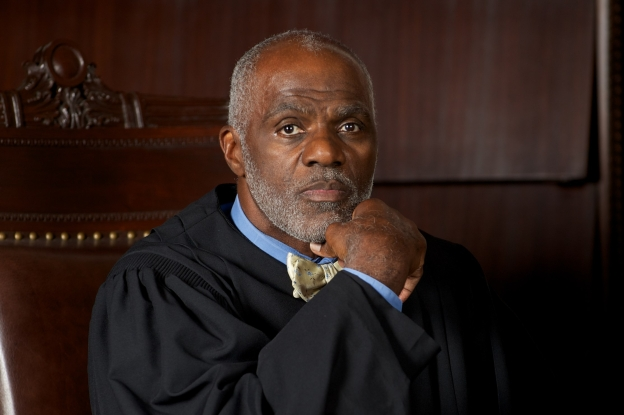

Minnesota Supreme Court approves bait and switch
Justice Alan Page is not impressed
(See the update below.)
Here is the language to be added to Minnesota Constitution if the ballot initiative passes this fall:
(b) All voters voting in person must present valid government-issued photographic identification before receiving a ballot. The state must issue photographic identification at no charge to an eligible voter who does not have a form of identification meeting the requirements of this section. A voter unable to present government-issued photographic identification must be permitted to submit a provisional ballot. A provisional ballot must only be counted if the voter certifies the provisional ballot in the manner provided by law.
(c) All voters, including those not voting in person, must be subject to substantially equivalent identity and eligibility verification prior to a ballot being cast or counted.
Here’s the ballot question (from the bill linked above) that the Supreme Court just said was A-OK:
Shall the Minnesota Constitution be amended to require all voters to present valid photo identification to vote and to require the state to provide free identification to eligible voters, effective July 1, 2013?
You might think, kids, based on the question to be on the ballot, that your Costco Card, or maybe your employee ID badge at the WalMart would be sufficient.
You would, of course, be wrong. You would also be wrong if you thought a driver’s license with an old address after you just moved would be okay. And you’ll be disappointed to learn that absentee voting will never be the same and that same day registration is almost certainly history. What asked in a hearing what “substantially equivalent” meant, Mary Kiffmeyer, Minnesota’s Jane Crow, said that it meant, well, “equivalent . . . substantially.”
And you might show up at the polls and be told you had to cast a “provisional ballot.” What’s that, a voter learner’s permit, you say?
But this stinker evaded the efforts of Secretary of State Mark Ritchie to make the ballot question more accurate, and of Common Cause of Minnesota, the American Civil Liberties Union, and others, to take it off the ballot entirely because it is so misleading. Four to two, the Minnesota Supreme Court said in a unsigned opinion, “What’s the problem?”
Justice Page described the problem in his dissent. He’s the one who called it a “bait and switch,” using this definition from Marriam Webster:
Bait and Switch: the ploy of offering a person something desirable to gain favor (as political support) then thwarting expectations with something less desirable.
You can read the entire dissent at the link, but here’s his conclusion:
Underlying this case is the Legislature’s purported concern about threats to the integrity of the ballot. Thus, it is ironic, if not Orwellian, that in the name of “protecting” the vote and preventing unspecified voting “fraud,” the Legislature has resorted to a ballot question that deliberately deceives and misleads the very voters it claims must be protected. I cannot explain, nor can I understand, the court’s willingness to be complicit with the Legislature in this effort. Nor can I explain or understand the court’s fear of putting before voters for their approval or rejection the actual language of the proposed amendment as drafted by the Legislature. Therefore, I respectfully dissent.
“Deleberately deceives and misleads . . . ” This is the real voter fraud; Justice Page is right on the money.
Here’s Democratic Visions’ Tim O’Brien and Hopkins/St. Louis Park House member Steve Simon discussing some of the ramifications of photo voter ID:
Update: A United States Court of Appeals in Washington has struck down a Texas law requiring photo voter ID. In March, the law failed to get pre-clearance from the Justice Department under Section 5 of the Voting Rights Act of 1965 and the court was affirming that decision.
Texas is one of several states subject to pre-clearance under Section 5 because of its Jim Crow history. Minnesota is not subject to pre-clearance, since it is seeking to be a new entrant to the pantheon of Jim Crow. The considerations are much the same, however, and can be expected to be raised in a post-amendment challenge if the ballot initiative passes.
Further update: Here’s the opinion in the Texas case.
Thanks for your feedback. If we like what you have to say, it may appear in a future post of reader reactions.

